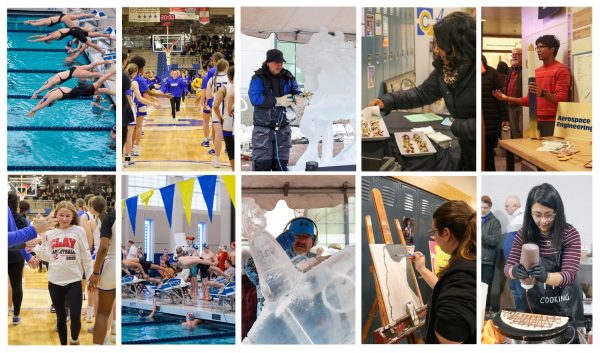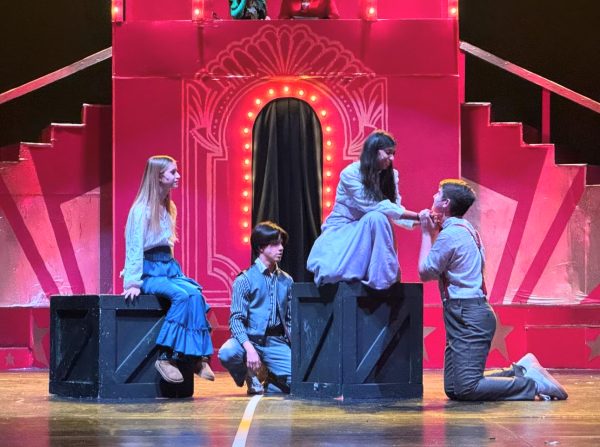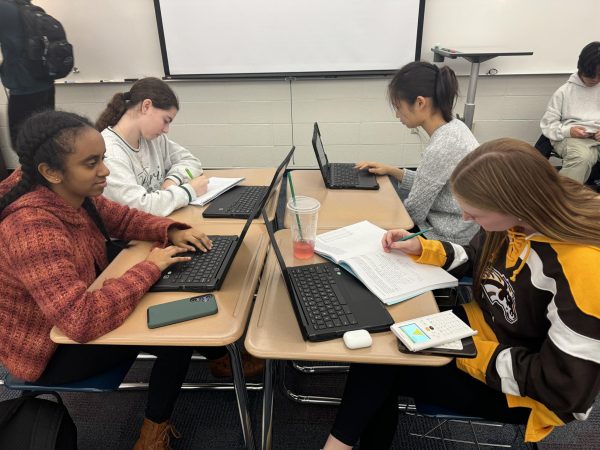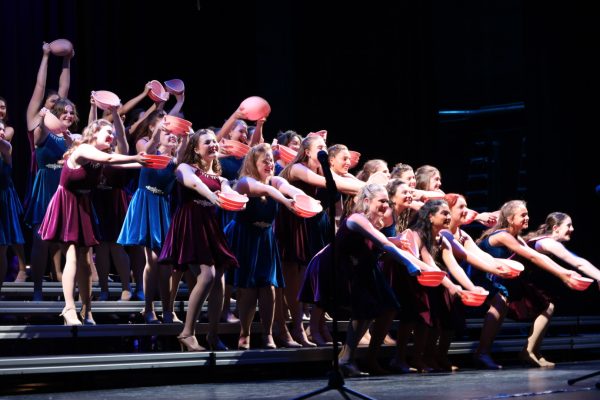Column: The Limits of Reenacting our History
Following the controversial reenactment of the Civil War Era in a Georgia elementary school, it is imperative that we deviate away from reenacting times that marginalize minorities as a whole.
More in Online Only:
Growing up, playing dress up was one of my favorite pastimes. It provided me and my friends an escape from reality for a short time being. When we slipped Disney-themed dresses over our shoulders, we felt as if we were transported into the locales we only saw through the Disney movies. When we dressed up as explorers, decked out in full-uniform with binoculars hanging over our necks, we felt the urge to explore every inch of our backyards in hopes of discovering a new phenomenon in the midst of suburbia. As we grew older, although the frequency of reenactment continued to decrease, the benefits within an educational setting continue to be clear and apparent as one is able to relive the moments that often are simply words in a textbook.
Just recently, however, this methodology has come under scrutiny due to the events at Big Shanty Elementary School in Cobb County, Georgia. As a part of the school’s Civil War curriculum, fifth grade students were able to dress up for ‘Civil War Day’ in what they believe was appropriate for that era. Although the parent of a young, fifth grade African-American boy, Corrie Davis, attempted discussions with the school board after her son had his friend call him a slave, the district continued to defend the simulation stating it was ‘optional’ and has been a part of the curriculum for the past twenty years.
As an African-American female myself, I not only staunchly disagree with the decision of the school district, but feel for the young boy who was forced to hear his peer call him a term that describes a racist and vile practice that was banned in the 19th century. Although my parents, immigrants from East Africa, do not have ancestors affected by the slave trade, I would think that most with a moral compass would at least understand the emotional burden placed unto the boy. The events of this one-day gig would not provide an environment conducive to learning, as suggested by the school board, but would rather continue to haunt the young boy for years to come.
Sadly, but not surprisingly however, even after bringing up the harm the events had on her son, the school district did not issue an apology but rather supported the curriculum. In an attempt to alleviate the situation, the mother, who has her doctoral in education, asked about dressing up for the Holocaust and was met with comments about the ‘absurdity.’ To the school district, dressing up for a decade of time where a ruthless dictator led to the death of millions of a religious minority was absurd, but reenacting a practice that lasted centuries, that led to the abuse and death of tens of millions of racial minorities was a given. It is important to note that both of these scenarios represent an atrocious time in our history, and it is imperative that we are aware about them to prevent future scenarios similar to the latter. However, placing young children in scenarios such as the actions by the Cobb County district are both wrong and erroneous. This institutional practice continues to perpetuate the institutional racism that continues to plague and haunt our nation. Thus, I urge you to be an advocate for change – educate those around you, fight for equality for all and don’t fear to disagree with institutional practices that encourage discriminatory action, change is on the horizon.
Your donation will support the student journalists of Carmel High School - IN. Your contribution will allow us to purchase equipment and cover our annual website hosting costs.

































![AI in films like "The Brutalist" is convenient, but shouldn’t take priority [opinion]](https://hilite.org/wp-content/uploads/2025/02/catherine-cover-1200x471.jpg)









































![Review: “The Immortal Soul Salvage Yard:” A criminally underrated poetry collection [MUSE]](https://hilite.org/wp-content/uploads/2025/03/71cju6TvqmL._AC_UF10001000_QL80_.jpg)
![Review: "Dog Man" is Unapologetically Chaotic [MUSE]](https://hilite.org/wp-content/uploads/2025/03/dogman-1200x700.jpg)
![Review: "Ne Zha 2": The WeChat family reunion I didn’t know I needed [MUSE]](https://hilite.org/wp-content/uploads/2025/03/unnamed-4.png)
![Review in Print: Maripaz Villar brings a delightfully unique style to the world of WEBTOON [MUSE]](https://hilite.org/wp-content/uploads/2023/12/maripazcover-1200x960.jpg)
![Review: “The Sword of Kaigen” is a masterpiece [MUSE]](https://hilite.org/wp-content/uploads/2023/11/Screenshot-2023-11-26-201051.png)
![Review: Gateron Oil Kings, great linear switches, okay price [MUSE]](https://hilite.org/wp-content/uploads/2023/11/Screenshot-2023-11-26-200553.png)
![Review: “A Haunting in Venice” is a significant improvement from other Agatha Christie adaptations [MUSE]](https://hilite.org/wp-content/uploads/2023/11/e7ee2938a6d422669771bce6d8088521.jpg)
![Review: A Thanksgiving story from elementary school, still just as interesting [MUSE]](https://hilite.org/wp-content/uploads/2023/11/Screenshot-2023-11-26-195514-987x1200.png)
![Review: "When I Fly Towards You", cute, uplifting youth drama [MUSE]](https://hilite.org/wp-content/uploads/2023/09/When-I-Fly-Towards-You-Chinese-drama.png)
![Postcards from Muse: Hawaii Travel Diary [MUSE]](https://hilite.org/wp-content/uploads/2023/09/My-project-1-1200x1200.jpg)
![Review: "Ladybug & Cat Noir: The Movie," departure from original show [MUSE]](https://hilite.org/wp-content/uploads/2023/09/Ladybug__Cat_Noir_-_The_Movie_poster.jpg)
![Review in Print: "Hidden Love" is the cute, uplifting drama everyone needs [MUSE]](https://hilite.org/wp-content/uploads/2023/09/hiddenlovecover-e1693597208225-1030x1200.png)
![Review in Print: "Heartstopper" is the heartwarming queer romance we all need [MUSE]](https://hilite.org/wp-content/uploads/2023/08/museheartstoppercover-1200x654.png)








